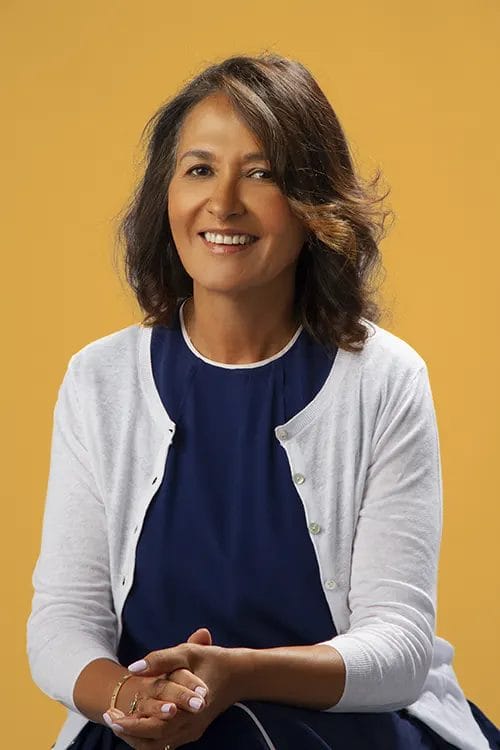I was first introduced to the term ‘eco-anxiety’ by an American friend who teaches the Forest School programme at an international school and has a very positive approach to life. We were attending a presentation by MindCareWorks, which provides school communities with programmes for wellbeing. She mentioned it as an emerging and worrying trend amongst young people and advised us to be mindful of overloading them with negativity in an attempt to urge them to engage as changemakers.
I went home, googled ‘Eco-Anxiety’ and found two rather conflicting definitions.
The American Psychological Association (APA) defined it as ‘A chronic fear of environmental doom’ whereas Wikipedia considered it ‘a challenging emotional response to climate change and other environmental issues’.
I discovered that Google searches related to ‘climate anxiety’, such as my own, have increased by 4,590% over the past five years, according to Time magazine. A related term- ‘solastalgia’, was coined in 2005 by philosopher Glenn Albrecht and described as ‘the homesickness you have when still at home’ or the distress of seeing home environments destroyed or changed. In 2015, the Lancet included ‘solastalgia’ as a contributing concept to the impact of climate change on human health and well-being.
So how exactly does this growing trend manifest itself? Although not yet recognised as a psychiatric condition, the APA identified the following possible ways: ‘Trauma and shock, PTSD (post-traumatic stress disorder), anxiety, depression, substance abuse, aggression, reduced feelings of autonomy and control and feelings of helplessness, fatalism and fear.’
Youth non-profit organisation ‘Force of Nature’ found that over 70% of young people felt hopeless in the face of the climate crisis and as many as 56% think that humanity is doomed. Only 26% felt that they knew how to contribute to solving the problem. It also found that young people on the front line of climate-induced crises suffered more. A 2021 study in the Lancet by Hickman et al. of 10,000 people aged between 16 and 25 revealed that 92% of those surveyed in the Philippines felt that the future was frightening, compared to 56% in Finland. 60% of those experiencing this anxiety had feelings of frustration and betrayal towards those in power.
Working with high school students and helping them to find their future pathways, I was keen to know more about eco-anxiety and what can be done to combat it. My friend directed me to a wonderful journal- Resurgence & Ecologist– with their current issue ‘Navigating Climate Anxiety’.
The leading article was by former clinical psychologist and current climate activist, Margaret Klein Salomon, who points out that whereas 70% of American now say they are worried about the climate, there is a ‘spiral of silence’ which means that only 9% of them ever talk about it. She argues that this silence leads to an illusion that everything is fine, ‘while feeling alone with their dismal knowledge.’ She argues strongly for breaking the silence; urging each of us ‘to tell the truth, loudly, and all the time so that collective political will can build to take necessary actions.’
Salomon recommends ‘Climate Grief Circles’ where people share their emotions and anxieties, describing the process as both restorative and beautiful. She goes on to argue that, following that healing process, it is important to come out the other side and turn the pain into action and choose the more challenging path of going all-in to solve the climate crisis. When I looked at the recommended website I discovered some of the following comments by participants in conversation circles.
Lexi
“It allowed me to openly discuss some really difficult and intense emotions in a safe space”
Heather
“This feels like a step in the right direction. I feel empowered.”
Dan
“I found it very powerful and relieving to learn that there are so many other actual people who are feeling and sharing my pain.”
Elinor
“I mostly felt really comforted. it didn’t make the problem go away, but it’s making me better resourced to deal with it”
Echoing Salamon’s call for collective conversations leading to action, Kieft quotes research showing that ‘solastalgia’ can have an adaptive function when it leads people to seek comfort collectively. ‘Like other climate related emotions, when processed collectively through conversations that allows for emotion to be processed and reflective function to be increased, this can lead to resilience and growth.’’
Fossil fuel producers are investing heavily in research into technologies to reduce carbon emissions, with developments in every imaginable field. Here in Dubai, I visited the 2023 edition of Prototypes for Humanity exhibition that showcased the efforts of graduate university students from 96 universities in 42 countries to innovate in ways that would decrease our dependency on fossil fuels and reduce our carbon emissions. One can only hope that they will be able to create viable solutions to mitigate the crisis. However, until that time, we should encourage young people to talk about their fears more, take comfort in expressing our collective concerns, and in so doing, also take action.
Have Climate Emotions Conversations at Climate Awakening.
Sources
- Hickman et al – ‘Climate Anxiety in children and young people and their beliefs about government responses to climate change: a global survey’- The Lancet Vol 5, Issue 12, December 2021
- J Kieft- ‘Embracing climate related emotions’ The Psychologist 11 May 2021
- MK Salamon, ‘Let’s Talk about these Feelings’ – Resurgence and Ecologist, Issue 341
- Glenn Albrecht ‘Solastalgia: A New Concept in Human Health and Identity’- Philosophy, Activism, Nature 3 2005
- Resurgence and Ecologist- Issue 341, November/December 2023
Useful website- Forest School Association



